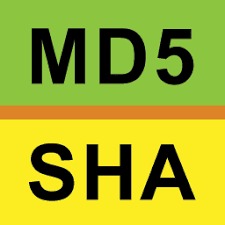MD5 & SHA Checksum Utility

License Key
KQQW3-G1A78-OGVZ6-THVBN-8RR8AWCVY8-OU0W8-3DWI8-ZBW9C-JTP6S
UX34G-F8MLZ-AKR16-M8PUP-1ER2G
MUH3P-98U22-XUI08-HAQ39-SBCQI
Activation Key
DV5UE-56VV1-PAJXL-E1Q5Z-WCKDMJ0FZ7-5YWUR-7Z377-D21XO-EVRMW
YVRK4-XRA0G-5MUB6-RT4FK-JNJ17
BPZXP-LXG1H-7S4CK-P62NF-NWSIZ
Key Download
BU5I5-T07YA-STN7J-CV26Z-KY79Y2QT5I-3L4FN-RE7ZK-21TSR-V95RX
MNB6E-N8NGJ-1I91U-R59OD-KSYLN
3YYL1-O7KPX-0IFTY-0WPY6-9R60P
Crack Key
OGN49-10KZM-UWDBN-M8RK1-G3NSSB75FE-M24P4-FV9OS-XWMZR-NM3EX
LYE0X-TEZE3-M53WM-GQX96-YDXZ5
I8WM3-ISX7K-7AFW0-OCUFK-1PWZF
Keygen
UW0E-9IV9F-MC9RI-BJM71-TKMJM2F2CR-2EFZ9-915H8-76D7W-AJMR3
VINV0-7P8H0-TVS5A-XBWP0-DT0R8
D88OF-VD5C5-9ZLG1-O5Z00-GGOA9
License Keygen
PRQW8-SVMPS-12VZE-R3YBD-5GV261YQD4-ID8A3-5BYJL-GR882-IG1GU
DJ5KD-RPGJ8-GZXF1-TYL8B-MDSV1
X17IW-WR8ZK-QIRLZ-VSTN5-03J2O
Serial Key
1MFJP-HM9CT-Q4MS5-VXEYD-6I98HBGVNB-B382D-0QKXB-UIHEY-JI4H1
LSN0V-IQDQ6-4IB7C-35G4G-8RQ8N
7H0J4-7O7D2-FCY9U-AYGRO-UOVC8
License Number
8MCJR-UWA0B-0RYSA-CCC0I-55JGNM76JR-L78W8-4T8DS-FEFTB-RW3UN
S24LI-H60F1-BXBYI-2RER8-NFV2A
KR3Z6-YHWEK-5WEDK-PSH7T-P6BER
Crack Full Key
3STQE-3QI6Y-P0SR9-YFA95-99T9OVI6R5-AVASU-SMLKC-1J27G-EW9X2
PMXNG-Z4OM8-GILFG-G7E5G-NN8UM
L2NLY-33J71-DNQNE-25UGA-SV5XE
Product Key
G6RY4-A4YST-7XKMH-RW5KW-KP8BRBIV5K-GPH2Y-VCNXX-1GBIM-PPS76
9ECQO-VC6VT-4ABSD-4LOCX-54UK7
VVL1L-R10WF-CURRF-OGQPT-7995P
Registration Key
XZDQE-U2G6B-4RBKJ-Z5ZKP-ZXZ78E029B-Y7NFS-SHLMQ-7P3XD-TXPML
CB4Y7-63OK4-PTLCK-U7414-Z4550
QC9TW-OYI6A-A4G86-0089L-3RAI1
Key Details of MD5 & SHA Checksum Utility
- Generate and verify MD5, SHA-1, SHA-256 and SHA-512 hashes of a file
- Last updated on 01/30/14
- There have been 0 updates within the past 6 months
- The current version has 3 flags on VirusTotal
Editors’ Review
Raymond Lin’s MD5 & SHA-1 Checksum Utility is a standalone freeware tool that generates and verifies cryptographic hashes in MD5 and SHA-1. Cryptographic hash functions are commonly used to guard against malicious changes to protected data in a wide variety of software, Internet, and security applications, including digital signatures and other forms of authentication. Two of the most common cryptographic hash functions are the Secure Hash Algorithm (SHA) and Message Digest Algorithm-5 (MD5). Checksum utilities are used to verify the integrity of generated hashes. There are two basic types, those that calculate checksum values and those that also validate them by checking them against a list of values for the protected data, which is the only way it can be done.
The program has a basic, utterly functional interface that should pose no trouble for anyone with the knowledge and skill to actually need it. To generate or verify a hash, you simply browse to the file of choice, select either MD5 or SHA-1, and click either Copy to generate the hash or Verify to check its integrity. A Paste function automatically enters the generated hash for verification at the click of a button.
MD5 & SHA-1 Checksum Utility is free to download and use, though Ray accepts donations from satisfied users. At a mere 57k, his checksum tool is about as small as a useful, functioning utility can be in this age of bloatware, and even more so considering that it’s certified to work in Windows Vista and 7.
WHAT’S NEW IN VERSION 2.1
Version 2.1 includes:
- Included SHA-512 hash
- Introduced Pro version
- Improved Drag and Drop function
- Minor bug fixes